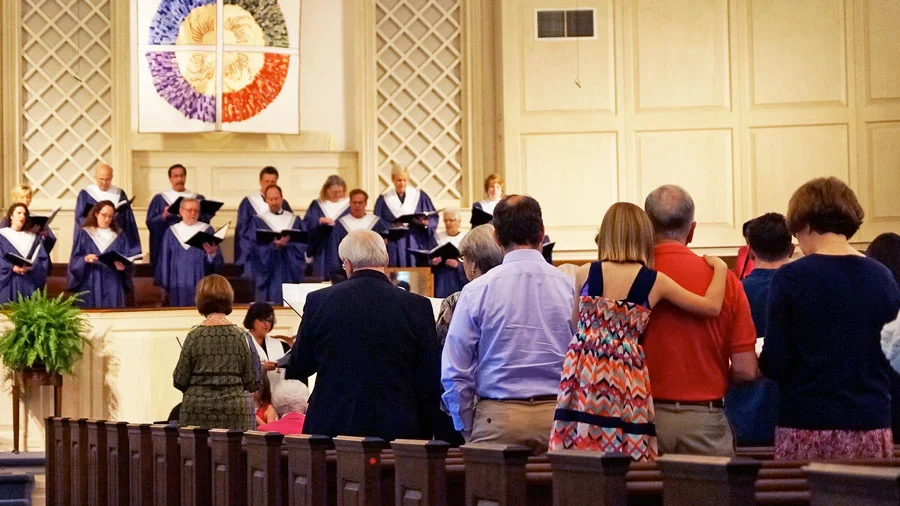(A letter from Russ Dean, Co-Pastor at Park Road Baptist Church, to The Charlotte Observer regarding its coverage of Franklin Graham's call for a boycott of Wells Fargo Bank.)
Dear Editors,
I am frustrated you chose to run as a lead headline the article about Franklin Graham’s decision to divest from Wells Fargo because they don’t share his views on sexuality. As a Baptist minister, I wish to state that Mr. Graham does not speak for me, nor for a large, and rapidly growing segment in the broad stream of Christianity.
Even if you did not intend to do so, your decision to trumpet Graham’s discriminatory message on page one of your paper impugned my work and cast an unfavorable light on my congregation through guilt by association. I am disappointed that you, and many other media outlets, are allowing bad religion to become front page news.
Graham’s views are based on a reading of the Bible which is insensitive to context (past and present) and so narrow in its literalism that it misappropriates the deep beauty of scriptural witness. Based on such a reading the Bible could hardly become anything but a bludgeon.
Our church has been working through the Gospel of Mark this year, and clearly my gospel sounds nothing like Mr. Graham’s, even though it comes from the same book. I think this means we get out of something what we read into it. After looking at the life of Jesus, who never said anything about boycotting a bank but often rebuked the arrogant hypocrisy of religious leaders who feigned themselves God’s “insiders,” I get out of the Bible a picture of the great wideness in God’s mercy and an overwhelming need for humility from those of us who would dare to speak for God.
Based on my lifetime of reading and studying the Gospel of Mark, I offer the following “handful of theology.” Mr. Graham’s message was front page news. I’ll be interested to see where you print this.
1 – You are loved. All of you. It’s the most important message we offer from our pulpit, every single Sunday: “You are loved. You are forgiven. Be at peace.”
2 – It’s good news. Unfortunately the Church sounds mostly like bad news to too many people today. (The Observer proved it again on Tuesday.) Jesus’ message was this simple: The kingdom of God is at hand. No matter where you’ve been, what you’ve done, come what may, God is with you. If the message your church offers doesn’t sound like good news – please find one that does. (We do exist!)
3 – This is hard stuff. The basic message can be stated simply, though doing so often obscures the message because life is never simple. So as we work out scriptural truths we must always do so, carefully. Read again. Listen again. Ask the hard questions. Good theology won’t fit on a bumper sticker.
4 – It’s about relationship. Mark spends a third of his gospel on the last week of Jesus’ life, and his death, so the cross is the right symbol for Christian faith – but only if we understand it. (See #3 above.) The cross isn’t about Jesus dying for your sins as much as it is about you… taking up your “cross” and following. Love that does not cost you anything is not love. So if you want to understand the cross, you have to learn to live, sacrificially, to love as Jesus loved.
5 – Love never fails. Mark’s gospel includes no record of appearances of the resurrected Jesus, only a promise: “you will see him.” This is the premise of faith, and the promise of hope, which never disappoints us. Love never fails. Nothing will ever separate us from God’s love. This is what resurrection means, but it’s up to us to look for it.
After almost 51 years of reading again, and listening carefully, and asking the hard questions, this is what it comes down to for me: the Gospel begins and ends with love, and really is good news. But it is news that is sometimes hard to understand, which is why we need to be in relationship with one another, loving one another, accepting one another, welcoming one another. As Jesus did.
So I'm frustrated by the attention given to Mr. Graham's sincere but misguided concerns because I am anxious for the beloved community I call The Church. The seed of the problem is, of course, bad religion, but no reasonable observer could confuse bad religion for a vibrant, thoughtful community of faith. Healthy societies have always made room for, if not depended on, a healthy expression of our deepest religious impulses.
The advancement of knowledge, and the arrow of time, will take care of Mr. Graham's concern, and many of us in the Christian community, based on a good news Gospel, are celebrating that that future is becoming a reality much more quickly than Franklin Graham is prepared to accept.

